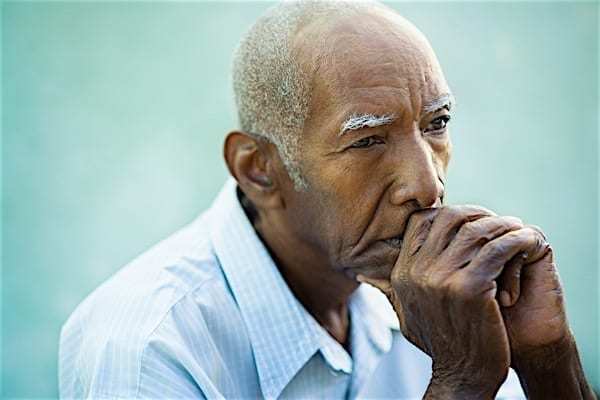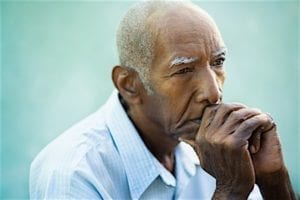
Seasonal Affective Disorder (SAD) and Seniors
 By Jill Poser, Director of Life Care Planning
By Jill Poser, Director of Life Care Planning
Seasonal Affective Disorder, otherwise known as SAD, is a form of depression that affects a person during the same season each year. For example, if you get depressed each winter, you may have SAD. It seems to be the most common amongst women, people who have a close relative previously diagnosed with SAD, or people who live in areas where winter days are very short or there are big changes in the amount of daylight during different seasons.
While the most common form of SAD occurs during the fall and winter months, rare forms can happen during the spring and summer months. SAD is most often diagnosed from the age of 15 to 55 and the risk of initial diagnosis decreases as you age. However, according to the National Institute of Health (NIH), the elderly are impacted by Seasonal Affective Disorder particularly those who are housebound.
What Causes Seasonal Affective Disorder?
SAD is thought to be caused by a lack of ambient sunlight, changes in body temperature or issues with hormone regulation, even though experts are not certain of the cause. Lack of light can upset your sleep-wake cycle and other cycles that naturally reoccur on a 24-hour basis. It is thought to cause problems with the brain chemical serotonin that affects mood. It is most often seen in the elderly during fall and winter months; particularly those who do not go outside often are more susceptible.
Symptoms may include social withdrawal, diminished energy and concentration, sluggish movement, increased sleep especially during the day, decreased interest in activities, carbohydrate cravings and increased appetite leading to weight gain.
How is Seasonal Affective Disorder diagnosed?
Often times SAD is tricky to diagnose because the symptoms presented are so similar to other forms of depression. In fact, SAD is sometimes improperly diagnosed as a physical condition such as hypoglycemia, hypothyroidism, infectious mononucleosis, and other viral infections. It is important to report all symptoms and answer honestly especially having been depressed during the same season, and gotten better when the seasons changed for at least 2 years in a row. Doctors may use a Seasonal Assessment Questionnaire (SAQ) that can also determine sleep patterns, weight changes, energy levels, mood changes, social activity and familial patterns. Treatment plans most often include bright light or dawn simulation therapy. Light therapy works quickly; however, you need to stick with it and use it daily until the season changes or SAD can come back. Other treatments include antidepressants and counseling such as cognitive behavioral therapy. Being active during the daytime is very important, especially first thing in the morning. Beginning the day with some form of exercise is highly recommended if possible. Check with your physician at the earliest sign of any of these symptoms. Remember, it is always best to be safe, not sorry.
Thanks for visiting Advocare of South Florida. Advocare helps families create and implement a plan of care to promote healthy aging or address illness in loved ones. We do this by Assessing the client, advising the family, and consistently advocating for optimal health and well being. Call us today at 561-266-3489.
